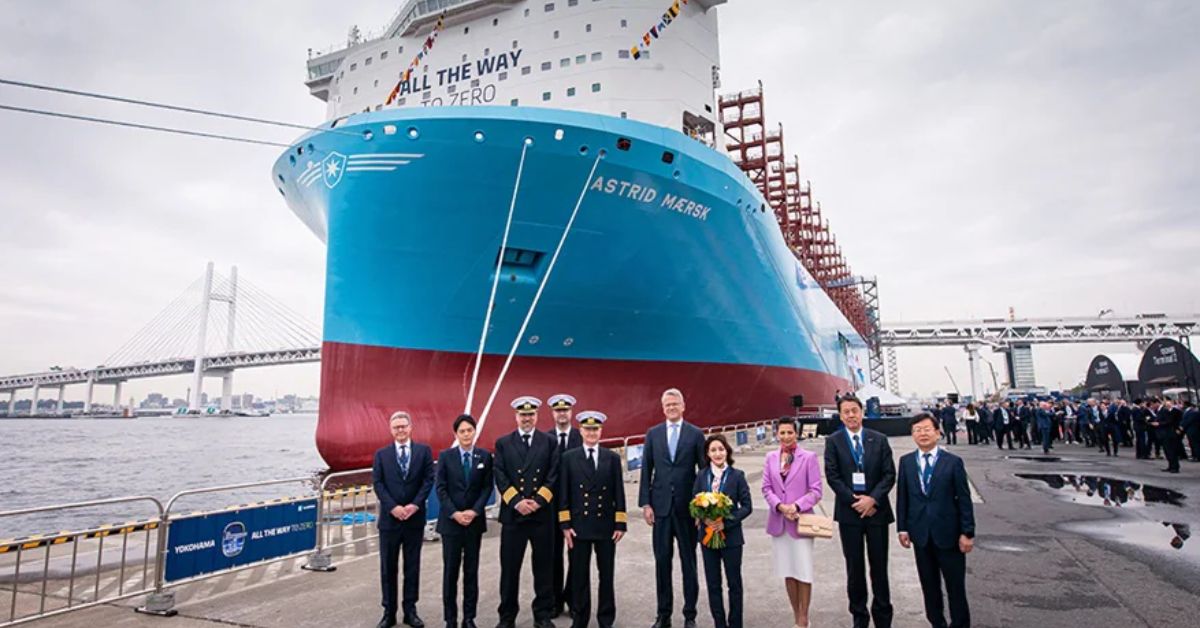In a ceremony held in Yokohama, Japan today, the world’s second large methanol-enabled container vessel was named “Astrid Mærsk”. Mrs. Liza Uchida, spouse of Nissan CEO Makoto Uchida served as godmother and christened the vessel. “Astrid Mærsk” is the second of Maersk’s 18 large methanol-enabled vessels, scheduled for delivery between 2024 and 2025. This new fleet series is expected to significantly contribute to Maersk’s net-zero targets and support customers in achieving their decarbonization goals.
We are truly excited to welcome ‘Astrid Mærsk’ to our new fleet capable of sailing on green methanol. With this vessel and her sister vessels, Maersk is taking important steps on the journey towards the energy transition of ocean transport. No one can do this alone. To enable green supply chains and accelerate shipping’s move towards net-zero emissions, continuous courageous action by dedicated customers like Nissan, industry peers, and suppliers is essential. Importantly, to maintain momentum, there is a need for global regulations from the International Maritime Organization (IMO) to close the price gap between fossil and green fuels to secure a level playing field,” says
Vincent Clerc, Chief Executive Officer of A.P. Moller – Maersk
“The name giving ceremony took place in Daikoku Pier Cruise Terminal in Yokohama city, where public audience could also register and get onboard for a vessel visit.
Yokohama holds a special place in Maersk’s history. Since the first vessel call at the Port of Yokohama a century ago, we have collaborated with our many partners and stakeholders in the city. Today’s ceremony symbolizes our enduring relationship with Yokohama and Japan as a whole. As we embark on our ‘All the Way to Zero’ journey, the support and partnership of the Japanese community are invaluable. We will continue to prioritize our efforts to minimize the environmental and climate impact of our activities while fostering economic growth and prosperity in the region,” says Toru Nishiyama, Managing Director of Maersk Northeast Asia.
Maersk has set a science-based Net-Zero greenhouse gas emissions target for 2040 across the entire business and has also established tangible and ambitious near-term targets for 2030 to ensure significant progress. The company will equip 25 of its container vessels with dual-fuel engines capable of sailing on green methanol. Among these vessels are the feeder vessel “Laura Mærsk”, deployed in the intra-Europe trade in September 2023, and “Ane Mærsk”, a large 16,000 TEU green fuel-powered container vessel deployed in the Asia-Europe trade in January 2024.
Maersk collaborative approach with the City of Yokohama is dedicated to the development of a green methanol bunkering infrastructure in Yokohama, further solidifying Maersk’s commitment to reducing emissions and promoting eco-friendly practices within the maritime industry.







